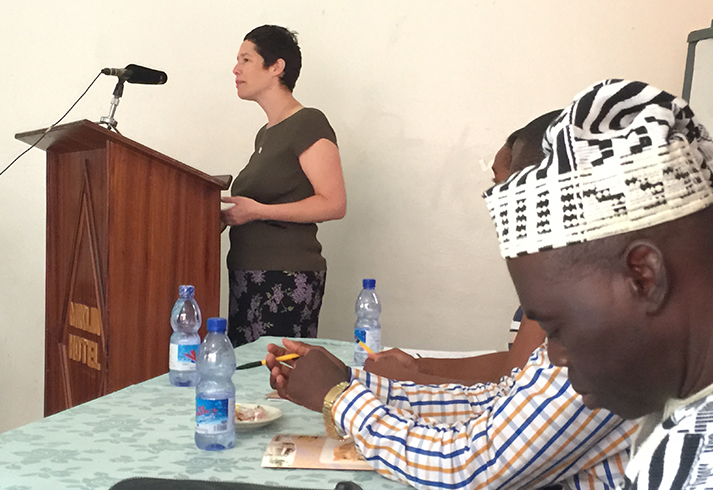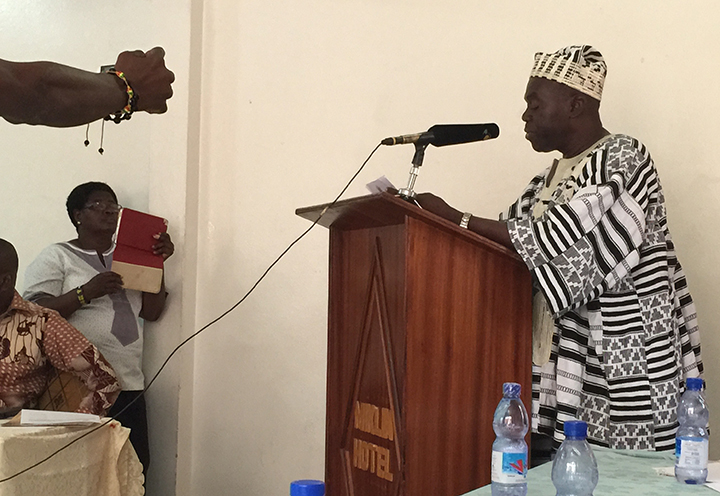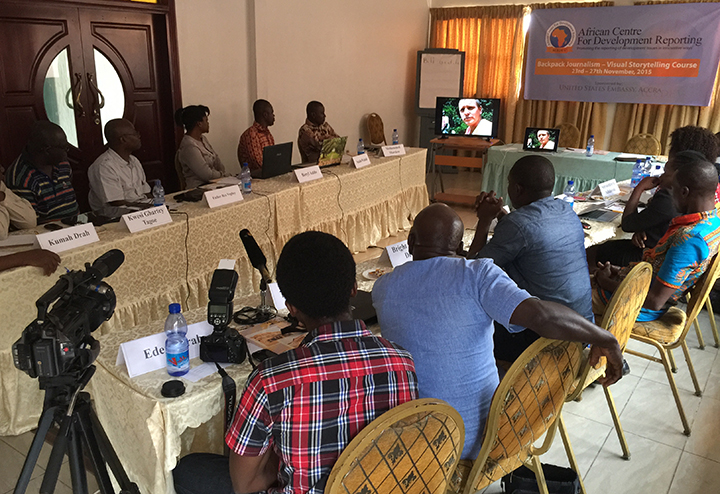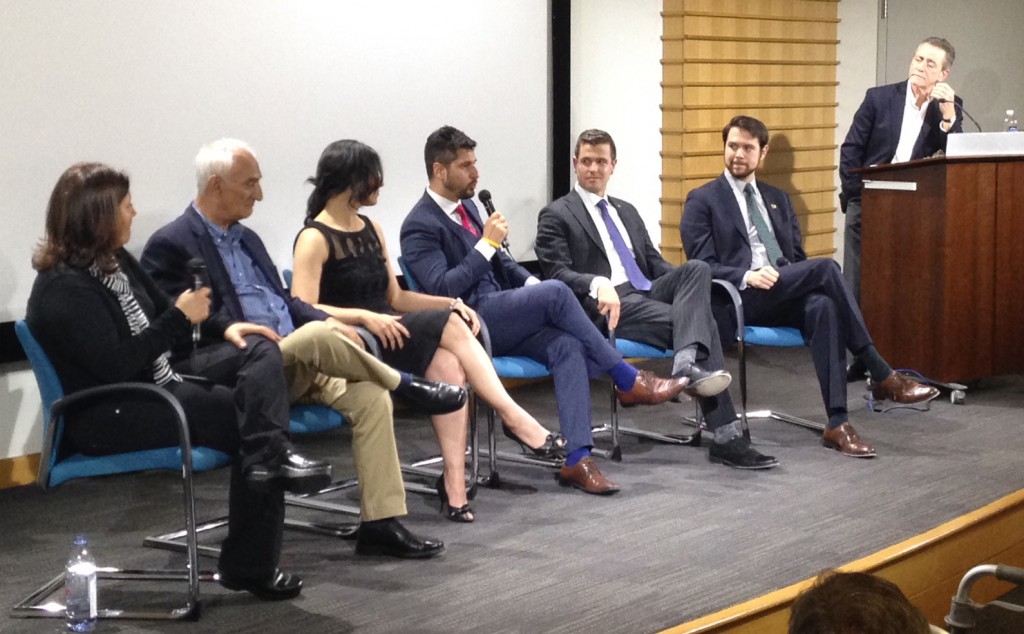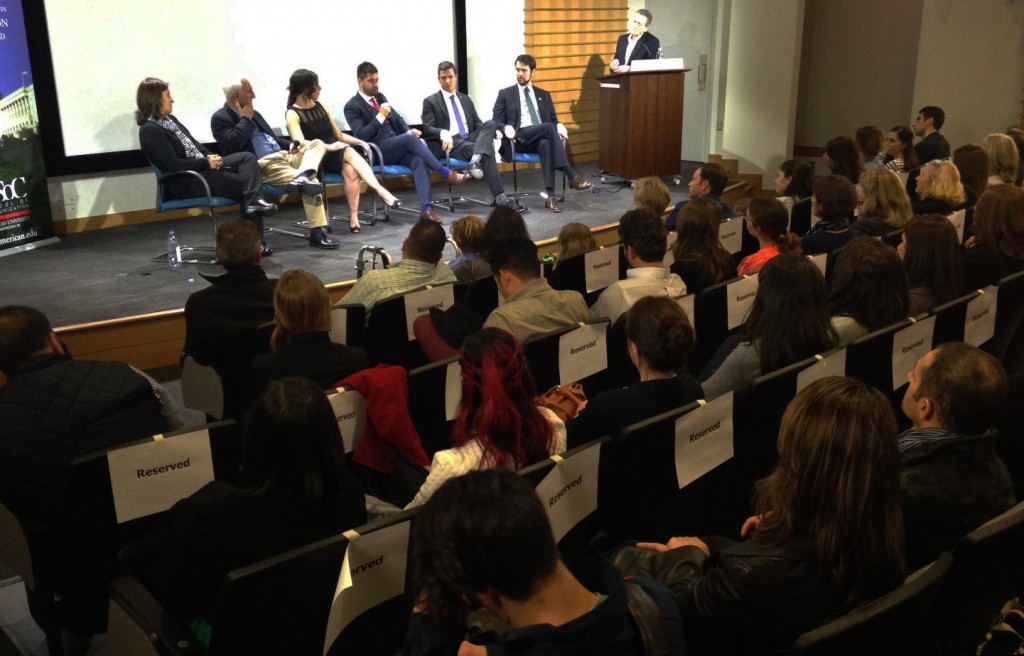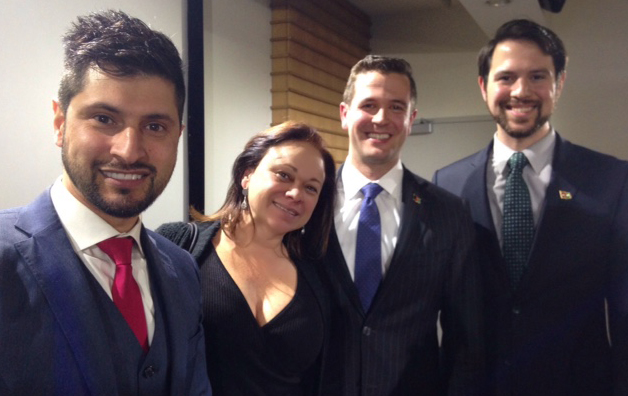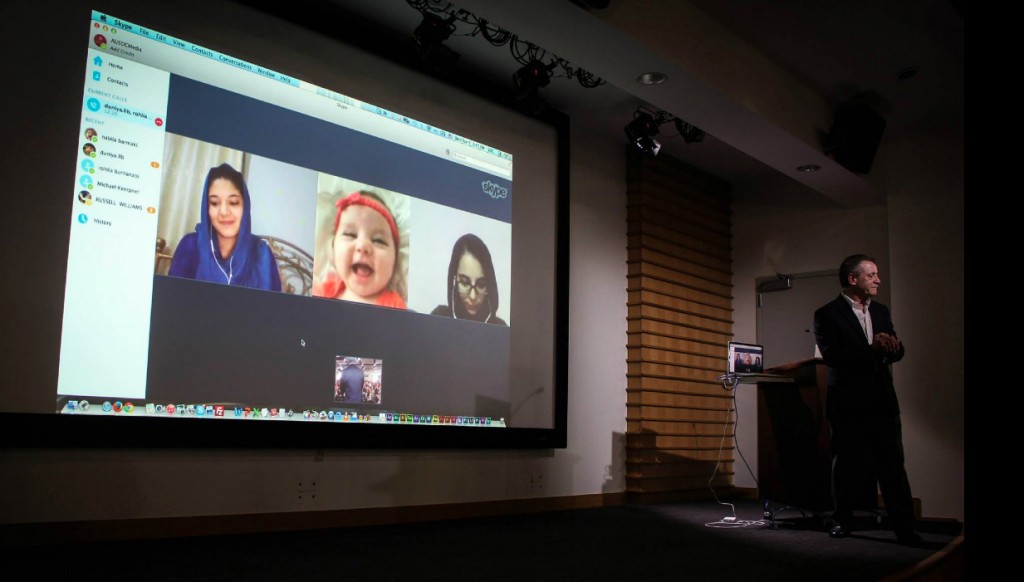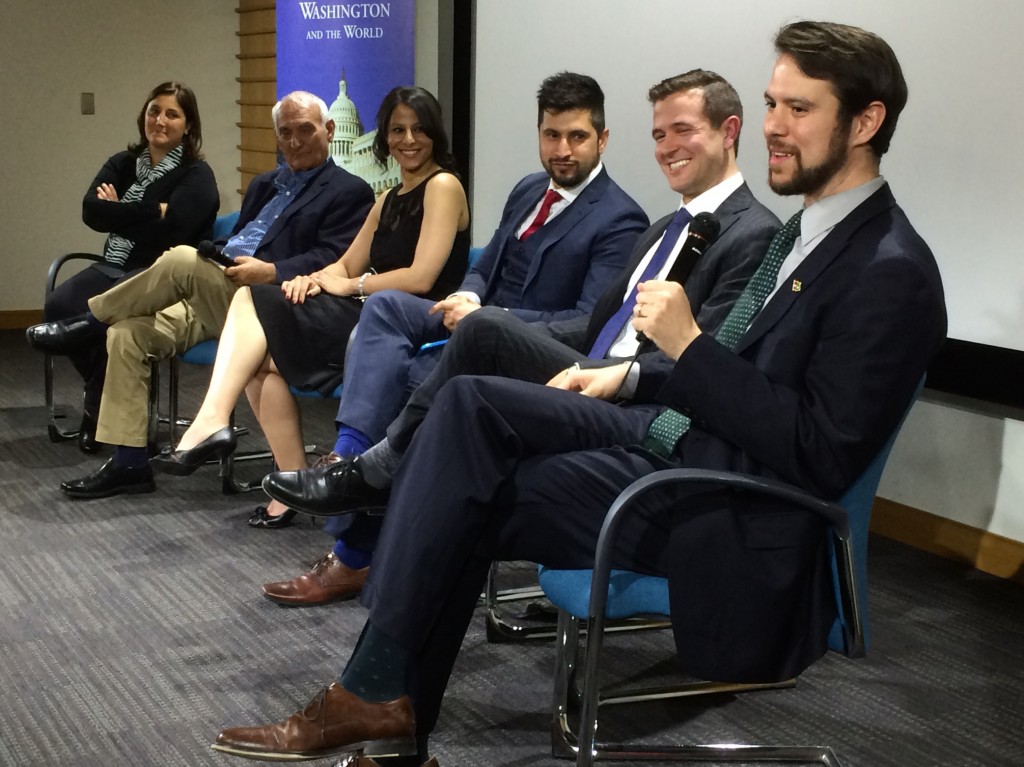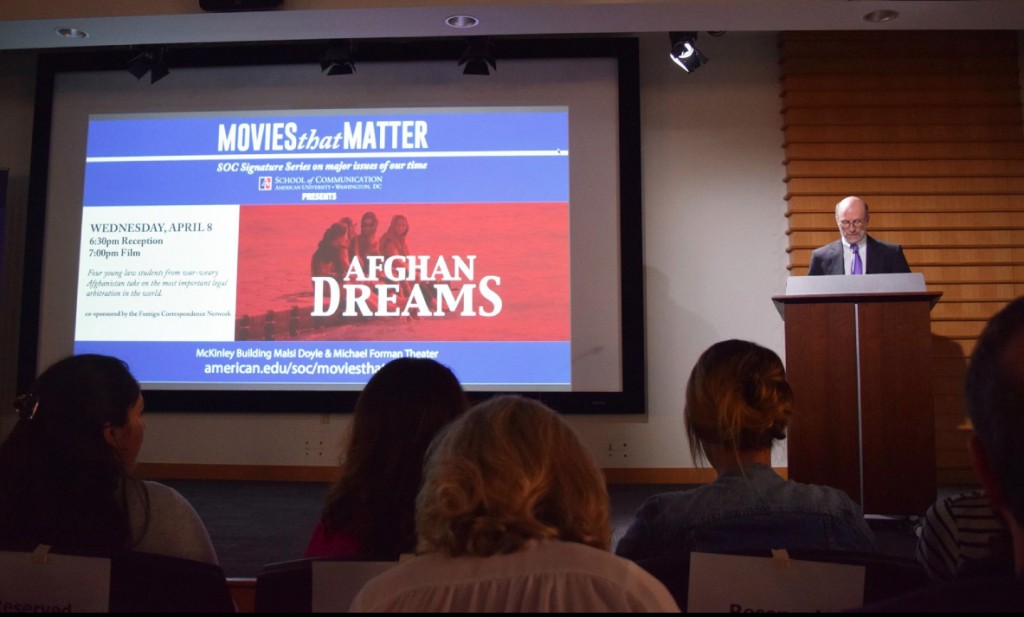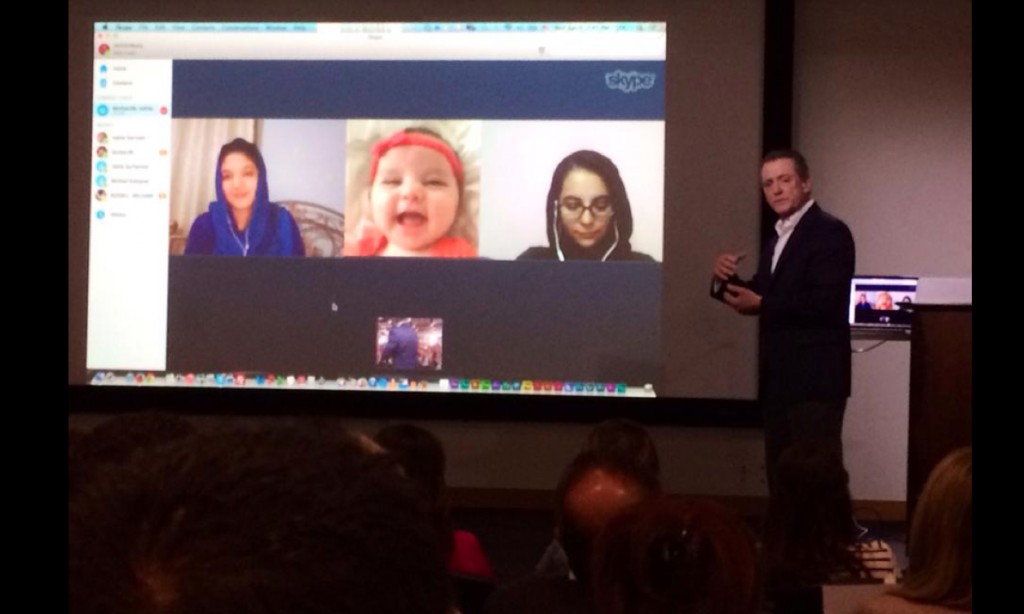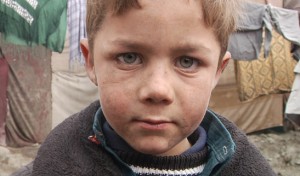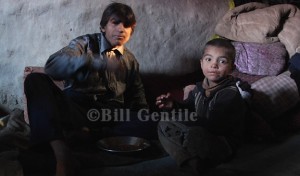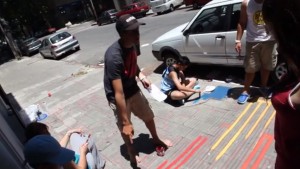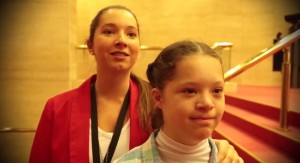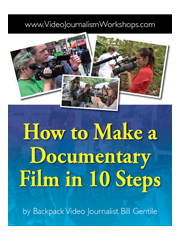ACCRA, Ghana, 23 November 2015 — Sara Stealy, Press Attache at the U.S. Embassy in Ghana, addresses participants, hosts and special guests at the opening session of my Backpack Video Journalism Workshop in the Ghanaian capital. Nicholas Derry, Director at the Ministry of Communications, delivers the opening address. Participants begin the first session.
The five-day workshop is sponsored by the African Centre for Development Reporting (ACEDEV), a small non-profit based in Ghana. It is funded by the U.S. Embassy here.
(Photos by Bill Gentile)
Backpack Video Workshop to Ghana
Remember to sign up for our free Essential Tips and Tools pdf booklet over on the right, and give us a like on Facebook.
“Afghan Dreams” Packs House
WASHINGTON, DC, 10 April 2015 — The screening on 8 April of “Afghan Dreams” turned out to be an event that was something beyond “special.” So many of you contributed to what one of the attendants called, “an inspiring and compelling documentary (event) about empowering women in Afghanistan. A wonderful story of perseverance, commitment and overcoming cultural and political barriers to become role models to younger women in Afghanistan. Actually getting to interact and speak with three of the girls on Skype followed by an interesting and insightful panel completely topped it off. Congratulations to all the team of ‘Afghan Dreams,’ so happy and proud to witness it.”
One of the most exciting components of the evening was the Skype session with three of our characters, all young women, who were featured in the film. They were thrilled to join the conversation. Events like these are what documentary filmmakers live for. It is our deepest form of gratification. It is part of what we aim to achieve: to impact the lives of others in a positive way.
Remember to sign up for our free Essential Tips and Tools pdf booklet over on the right, and give us a like on Facebook.
Where Has All the (Our) Money Gone?
KABUL, Afghanistan, 7 January 2014 — This is a brief clip I shot in a refugee camp in Kabul. According to a camp spokeswoman, the camp houses about 1,500 people from across Afghanistan who have fled the war. She said some of the refugees have been here for as long as 12 years. No running water. Open sewers. No electricity. Some of the kids don’t have shoes.
In a May 2012 report, the Washington, DC-based Center for Strategic and International Studies (CSIS) estimated that if government figures on Afghanistan “for FY2001-FY2013…are totaled for all direct spending on the war, they reach $641.7 billion.”
That’s right, $641.7 billion, with a “B.”
The CSIS report goes on: “This is an incredible amount of money to have spent with so few controls, so few plans, so little auditing, and almost no credible measures of effectiveness.”
Indeed, the spokeswoman at the refugee camp asked what happens to all the money donated by foreign countries, especially the United States. Why are thousands of people living in conditions like the ones in this video?
I didn’t have any answers. Click HERE to see the clip.
#documentaries
Remember to sign up for our free Essential Tips and Tools pdf booklet over on the right, and give us a like on Facebook.
Navigating Misery and Video Journalism
KABUL, Afghanistan, 5 January 2014 — Two boys eat a lunch of leftover rice in a refugee camp on the edge of Kabul. About 1,500 people live in this squalid complex of tents and dirt homes. Especially in winter, as the temperature at night hovers below zero, life here is tenuous, particularly for children. The New York Times carried a front-page story recently about malnutrition running rampant among Afghan children — despite billions of dollars in aid during the last 10 years.
Working in these camps is a challenge. In addition to the grinding misery that is harder to accept each time you see it, navigating through masses of people in need becomes more difficult each time you do it. You do so by telling yourself that your work means something. You say that perhaps it will draw attention to their plight. And then you hope that it does.
Remember to sign up for our free Essential Tips and Tools pdf booklet over on the right, and give us a like on Facebook.
“Footprints of Color” at Montevideo Workshop
WASHINGTON, DC, 23 December 2013 — One of the most interesting films made during our recent Backpack Video Journalism Workshop in Montevideo, Uruguay, was done by Juan Marra about a young man who paints the sidewalks near his home in an effort to brighten up the neighborhood.
This is just another example of how stories present themselves to those of us who open our eyes, and perhaps our hearts, in order to see and to feel them. You don’t have to go to Syria to find a good story. There’s probably one, on your own block, waiting for you to tell it.
The five-day workshop was organized by Valentina Quagliotti, an exchange student at American University in 2010. Valentina is the founder of Ikusi, a non-profit dedicated to making positive social change with video. My trip to Uruguay was funded by the U.S. Embassy in Montevideo.
Remember to sign up for our free Essential Tips and Tools pdf booklet over on the right, and give us a like on Facebook.
“See, Tell, Change,” With Video Journalism and Ikusi
WASHINGTON, DC, 21 December 2013 — This is the essence, the very core, the embodiment of what can be achieved with visual communication. It is the confluence of passion and technology. It is everything that communication can be. It is what I teach my students and it is what I, myself, aspire to. It is called Ikusi.
Pictured above is Valentina Quagliotti, a Uruguayan exchange student at American University in 2010. On the right is Valentina’s younger sister, Agustina. When I met Valentina, her non-profit, Ikusi, still was only a dream, a dream about making positive social change with video. Today it is a reality, and I’m privileged to say that I’ve just returned from Uruguay where I conducted a Video Journalism Workshop and a number of presentations, on behalf of Valentina’s non-profit. The trip was organized by Valentina and funded by the U.S. Embassy in Montevideo.
Valentina just published her group’s video report for 2013. Click HERE to see it. At the end you’ll see the group’s logo and slogan: “See, Tell, Change.” And that’s exactly what she’s doing.
She inspires me.
Remember to sign up for our free Essential Tips and Tools pdf booklet over on the right, and give us a like on Facebook.
